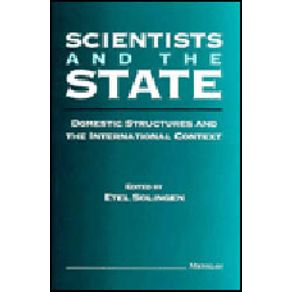The book examines state/scientist relations in a wide range of twentieth-century states. The chapters respond to a common conceptual framework that explores the influence of domestic and international, political and economic structures on state/scientist relations. Case studies include the United States, the former Soviet Union, Japan, Germany (from Weimar to the reunification), France, Israel, Brazil, China, and India. The rich literature on science, technology, and society has, for the most part, ignored the systematic study of political relations between scientific communities and the state, despite the unprecedented growth of these communities in the latter part of this century. This volume is designed to fill the gap by providing a comparative framework as well as historical case studies. The recent transformation of cold war structures, the exigencies of economic conversion and competitiveness, and the new waves of scientific migration bring the timeliness of this effort into sharp relief. The application of a unifying conceptual framework to a varied set of instances broadens the volume's appeal to students of science, technology, and international relations, to researchers of the politics and history of science and technology, to scholars and practitioners of science policy, to natural scientists interested in the social and political context of scientific research, and to the general reader interested in the many ways in which states exploit scientific knowledge as a venue to power and wealth.


